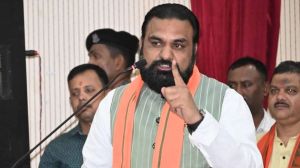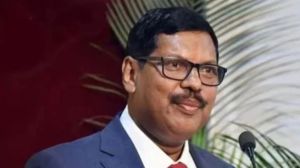The Centre must help Mufti
For all these years, the Centre’s Kashmir story had just one villain: Pakistan. Now there is an overnight addition. Chief Minister Muft...

For all these years, the Centre’s Kashmir story had just one villain: Pakistan. Now there is an overnight addition. Chief Minister Mufti Mohammad Sayeed and his policy of bringing a ‘healing touch’ to J&K is now seen as the reason for what appears to be a sudden spurt in militant violence, symbolised by the fidayeen attack on Jammu’s Raghunath Temple.
The Centre argues that Mufti’s decision to release some militants has encouraged ultras to accelerate their offensive and compromised the nation’s security. DPM L.K. Advani emphasised, in addition, that the J&K government did not consult the Centre before releasing the militants.
The alacrity with which BJP has jumped on the issue betrays its anxiety to settle scores with Mufti’s coalition partner, the Congress in time for the Gujarat polls. So heated was the rhetoric that it seemed that the Raghunath Temple attack was conducted by the very militants who were released.
In the process, Mufti was projected as having opened the gates of all the prisons in the state and was friendly with all the militant groups, including the jehadis from across the border. It almost seemed as if Kashmir was absolutely normal before he took over the reins of the state.
Ironically, though, the Centre’s response reflects how removed South Block is from the ground situation in the state and how uninterested it is to initiate a result-oriented peace process to get the state back to normalcy.
After having gone through so many wasted years and so much bloodshed, it would be doing the Kashmiris a great disservice if J&K’s troubles are trivialised and made into a handy issue for the Gujarat polls. Indeed, if the militants and their leaders hated Farooq Abdullah, they regard Mufti as an even bigger enemy. The reason for this is simple. He has emerged as a leader who represents, to a fairly large extent, the aspirations of the Kashmiris within the mainstream.
Farooq Abdullah was, in fact, viewed as New Delhi’s representative in Kashmir rather than the representative of the Kashmiris in Delhi. In contrast, Mufti’s credibility is still intact and people do have a lot of expectations from him. He got votes because he promised change.
Among the 26 Mufti released from prison is Yasin Malik, who is neither an activist of the Lashkar-e-Toiba nor the Jaish-e-Mohammad. He is a separatist politician, who has embraced non-violence. If allowing him to go is a crime, it has been committed by the same central government earlier as well. The other militant who was freed is Shakeel Bakhshi, who had already spent 12 years behind bars. Bakhshi — also a JKLF man — has not gone back to militancy.
In fact, he and others have actually been released by the courts on parole. What Mufti and his government did was that they did not re-arrest them in the court compound like the previous government had done.
As for Mufti’s much discussed ‘healing touch’, well, it is certainly not a a declaration of secession. If Mufti’s rhetoric is to be believed, he is serious about addressing the problem of bringing normalcy to the state. Among the measures he wishes to see is the beginning of an unconditional dialogue with the militants and Pakistan. He has been talking of screening the prisoners and releasing those who have not committed serious crimes. He also wishes to rehabilitate the victims of violence.
Mufti also seeks the security forces involved in counter-insurgency operations to act with responsibility. The aim here is to minimise human rights abuses. How does all this hurt ‘national interest’? These measures would, in fact, build the necessary confidence for a political dialogue, which is the only way to resolve this problem.
Mufti’s approach is to look for ways and means to handle violence that amount to more than just gunning down militants. In fact, what Mufti is talking about now was the view held by the army chief some time back when he said that the armed forces can only kill militants, it cannot end militancy. That would require a political solution.
But Mufti is destined to fail. This is because his success depends almost entirely on unconditional support from the Centre. Yet, if his failure has its epicentre in Delhi rather than in his own inability to deliver on his poll promises, it will only strengthen him in Kashmir. He could then, very easily, make the confrontation with the Centre an issue and go back to the people. But such a trajectory will shatter all hope of a peace process.
Therefore, if New Delhi believes that Mufti’s rise to power in Kashmir has come through a genuine democratic process, it needs to honour that verdict in letter and spirit and leave Mufti and his government alone.



- 01
- 02
- 03
- 04
- 05




























